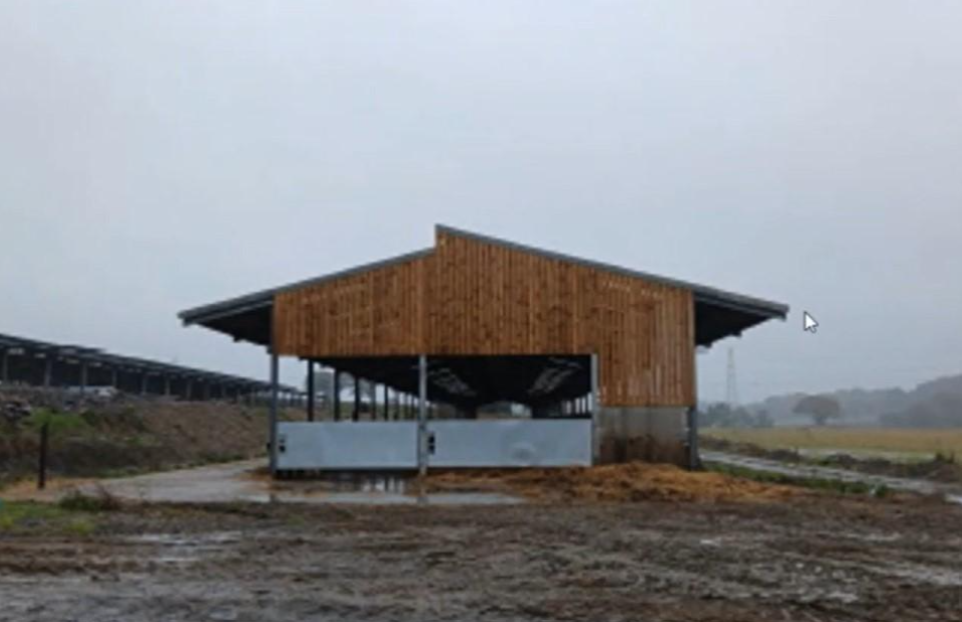Business
Banks’ reluctance to offer competitive interest rates

AS the Bank of England gears up to announce its latest interest rates tomorrow, intelligent finance app, Plum, accuses banks of profiteering from elevated interest rates without offering fair returns to savers.
The prevailing Bank of England’s base rate is a significant 5.25%. However, a substantial number of UK banks have dragged their feet in recalibrating their savings account rates. Consequently, many savers feel they are not receiving their fair share.
A fresh study spearheaded by Plum reveals that the typical UK saver tucks away £260 monthly, accumulating to an impressive £24,500 in their savings pot. Strikingly, most are only receiving an average of 3.3% interest on these savings – a notable 1.95% below the central bank’s base rate. In numerical terms, this translates to an average annual loss of £478 in potential interest per saver, cumulating to an alarming £17 billion deficit for UK savers as a whole.
Despite the clear financial advantage of switching to a higher-interest account, an overwhelming 77% of savers have opted to stay put. Among the reasons given, 28% cited marginal differences in rates between banks, while 30% professed loyalty to their current banking institutions. This sentiment exists even though a whopping 71% believe banks’ profit margins to be excessively high.
When probed about their savings goals, almost half (49%) are saving for emergencies, closely followed by 44% saving for holidays. For individuals below 45, saving towards a home or its enhancement was a primary motive (47%). In contrast, for those aged 55-64, retirement topped the list (51%).
Earlier this year, the Financial Conduct Authority (FCA) unveiled a robust 14-point strategy aiming to ensure that banks and building societies provide savers with appropriate interest rates. Institutions failing to provide valid reasoning behind their pricing models by 2023’s close could face stringent measures from the FCA.
Victor Trokoudes, Plum’s Founder and CEO, voiced his concerns: “In the current cost-of-living crisis, it’s disheartening to see many banks dragging their feet in revising interest rates on savings accounts, thereby undermining the value of savers’ diligent efforts. The FCA’s promised action, although commendable, isn’t an all-encompassing solution. The central issue remains: major banks’ operations seem misaligned with their customers’ best interests.”
He further added, “Since December 2021, the Bank of England has hiked its rates 14 times, a trend predicted to continue in the forthcoming announcement. It’s crucial for the public to be proactive and not let banks undervalue their deposits. Plum is committed to introducing a new offering, ensuring savings keep pace with the base rate dynamics.”
Plum, boasting a track record of assisting people in saving over £2bn, is on the cusp of launching a novel product. This new initiative promises returns more in line with the Bank of England’s base rate, ensuring savers earn what they rightfully deserve.
Business
Langdon Mill Farm Pembrokeshire expansion signed off

THE FINAL sign-off for plans for a heifer accommodation building and associated works at one of Pembrokeshire’s largest dairy farms, with a milking herd of 2,000 cows, have been given the go-ahead.
In an application backed by councillors at the December meeting of Pembrokeshire County Council’s planning committee, Hugh James of Langdon Mill Farms Ltd sought permission for a 160-metre-long heifer accommodation building, a slurry separation/dewatering building and associated yard areas at 1,215-hectare Langdon Mill Farm, near Jeffreyston, Kilgetty.
A supporting statement through agent Reading Agricultural Consultants said: “The holding currently has a milking herd of approximately 2,000 cows, which are housed indoors for the majority of the year, with dry cows and heifers grazed outdoors when weather and soil conditions permit.

“There has been significant investment in buildings and infrastructure at the farm over the last decade in respect of cattle accommodation, slurry storage, milking facilities, Anaerobic Digestion (AD) plant, feed storage. Recently a calf and weaned calf accommodation buildings were approved by Pembrokeshire County Council with construction almost complete.
“The unit is efficient, achieving yields of more than 10,000 litres/cow/year, with cows being milked three times/day in the 60-point rotary parlour. Langdon Mill Farm currently directly employs 21 full-time, and three part-time staff. Of these, four live on site in the two dwellings opposite the farm, with the remaining staff living in the locality.”
It added: “Although the unit has previously purchased heifers to aid expansion, the farm now breeds most of its own replacements to improve genetics and to minimise the ongoing threat of bovine tuberculosis (bTB).”
It said the proposed building would be used by heifers between the ages of 7-22 months, the siting “directly influenced by the adjacent calf and weaned calf buildings, with livestock being moved from one building to the next as they get older”.
Members unanimously supported the recommendation of approval, giving delegated powers to the interim head of planning to approve the application following the final approval of a habitats regulations assessment.
An officer report published yesterday, February 5, said Natural Resources Wales confirmed it had received the assessment, and, “in consideration of the mitigation measures detailed and on the understanding there is no increase in stock, they agree with the LPA’s conclusion that an adverse effect upon the integrity of the SAC [Special Areas of Conservation] sites can be ruled out”.
Formal delegated approval has now been granted by officers.
Business
Report into Wales SME finance paints mixed picture as barriers remain

A NEW report by the British Business Bank and Economic Intelligence Wales shows that while most Welsh SMEs remain financially stable, many continue to face barriers to accessing finance and are less likely than their counterparts in other devolved nations to seek funding for future growth.
The Wales SME Access to Finance Report 2026 has found that 66% of Welsh SMEs are currently using external finance, and eight in ten (80%) report a positive cash flow position. Despite this, 19% of smaller Welsh businesses reported experiencing barriers to accessing finance, the highest proportion among the devolved nations.
The report also highlights a more cautious outlook among Welsh SMEs when it comes to future investment. Just 17% of Welsh businesses expect to require additional finance over the next year, compared with 42% in Northern Ireland and 47% in Scotland. While 62% of Welsh SMEs that anticipate needing finance say they are confident about securing it, overall demand for funding remains lower than elsewhere in the UK.
Regional variations within Wales are also evident. SMEs based in North Wales and South West Wales were more likely to report barriers to finance (both 21%), while South West Wales businesses were least likely to feel confident about securing additional funding. At the same time, SMEs in South East Wales were most likely to report a finance requirement above £250,000, reflecting differing growth profiles across regions.

The findings underline the importance of a diverse and accessible finance ecosystem to support business investment, innovation and growth across all parts of Wales.
Susan Nightingale, Director UK Network, British Business Bank, said: “Welsh businesses continue to show resilience and confidence, with most reporting positive cash flow and steady growth expectations. Yet, clear regional and structural differences remain in access to finance, particularly for smaller businesses and sole traders. With Wales recording the highest share of smaller businesses experiencing barriers to finance among the devolved nations, it is vital that all businesses, wherever they are in the country, have the knowledge, confidence and support to secure the right finance for them. This will be key to unlocking sustainable growth across every part of Wales.”
Giles Thorley, Chief Executive of the Development Bank of Wales, said: “This year’s Wales SME Access to Finance Report shows a mixed picture. It’s encouraging to see many Welsh SMEs reporting strong cash flow, yet concerning that confidence and demand continue to lag behind other UK nations. If we want our businesses to innovate, invest and grow, closing that gap must remain a priority.
“Improving access to finance isn’t something any one organisation can solve alone, but the Development Bank of Wales will continue to play a vital role in supporting SMEs, working alongside partners across the wider finance ecosystem to help businesses invest, innovate and grow.”
Economic Intelligence Wales is a unique research collaboration between the Development Bank of Wales, Cardiff Business School, Bangor Business School, the Enterprise Research Centre, and the Office for National Statistics (ONS).
Business
International Women’s Day event aims to open doors for future talent in West Wales

BUSINESS leaders, students and policymakers will gather in Pembrokeshire next month to mark International Women’s Day with an event focused on opportunity, leadership and retaining talent in West Wales.

The third annual Partners in Progress: Give to Gain conference will take place on Friday (Mar 6), bringing together established professionals and the next generation of workers to share practical advice and real-world experience.
The event is organised by Institute of Directors Wales, in partnership with Bluestone National Park Resort and the Welsh Government through Trade & Invest Wales.

Hosting the conference in West Wales, rather than a city centre, aims to highlight the growing opportunities available in regional communities and the role local employers play in keeping skilled people closer to home.
Running from 10:00am to 2:00pm, the programme will include panel discussions, site tours and networking sessions. Sixth form, college and university students will be encouraged to question speakers directly about careers, leadership and progression.

Speakers include Belinda Houghton-Jones of RBC Brewin Dolphin, Alex Shufflebottom Jones, former managing director of Shufflebottom Ltd and now an investor and mentor, Dr Owain James of Darogan, and Jane Wallace-Jones, founder of Something Different. The panel will be chaired by Richard Selby, National Chair of IoD Wales.
Organisers say the focus will be firmly practical, with businesses sharing examples of how they are developing staff, widening access to opportunity and building inclusive workplaces.
The discussion comes as Welsh firms continue to report difficulties recruiting and retaining skilled staff. IoD Wales’ latest State of the Nation survey found that skills shortages remain the biggest concern for almost four in ten organisations.
Jo Price, Nations Manager for Wales at IoD Wales, said the aim is to connect experience with ambition.
She said: “Partners in Progress is about bringing people together to tackle real challenges facing businesses and future talent in Wales.
“By connecting leaders and students in West Wales, we can share what works, build confidence and create opportunities where people live and want to work.”

Rebecca Rigby, Director of Operations at Bluestone, added: “We’re proud to host this event for a third year. It’s about creating meaningful connections between future talent and inspirational leaders, and showing what’s possible beyond the big cities.”
Thanks to Welsh Government support, tickets are fully funded, although places are limited. Standard prices are £25 plus VAT for members and £35 plus VAT for non-members.
Places can be booked online via the IoD website.
-

 Health3 days ago
Health3 days agoHealth board targets rise in steroid and gym drug use across west Wales
-

 Crime4 days ago
Crime4 days agoSex offender jailed after living off grid in Pembrokeshire and refusing to register
-

 News5 days ago
News5 days agoPrincess of Wales visits historic Pembrokeshire woollen mill
-

 Health7 days ago
Health7 days agoDoctor struck off after sexual misconduct findings at Withybush Hospital
-

 Crime3 days ago
Crime3 days agoTeacher injured and teenager arrested for attempted murder at Milford Haven School
-

 News7 days ago
News7 days agoHerald journalists to feature in true-crime documentary on local lockdown murder
-

 Crime5 days ago
Crime5 days agoHakin man’s appeal delayed again as Crown Court seeks guidance on insurance law
-

 Crime6 days ago
Crime6 days agoArrest made after Carmarthen park stabbing investigation

























